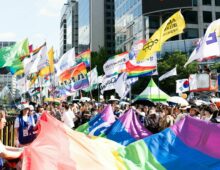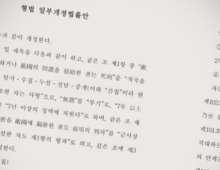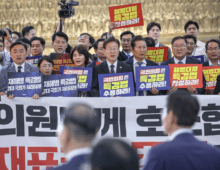For the first time in 30 years, South Korea’s Supreme Court is grappling with an interim leadership arrangement following the retirement of Chief Justice Kim Myeong-su. The legislative confirmation for Chief Justice nominee Lee Gyun-ryong, put forward by President Yoon Suk-yeol on Aug. 22, hangs in the balance. The main opposition Democratic Party (DP) has raised concerns over Lee’s past rulings and personal controversies, causing a delay in his confirmation. Ahn Chul-sang, the senior-most among the 13 Supreme Court justices, stepped in as acting chief justice this Monday.
Amidst this backdrop, some in the judicial circle voice concern over the Supreme Court’s ability to conduct its en banc hearings and rulings — central functions of the top court — under acting leadership. Worries abound that prolonged leadership ambiguity might sow confusion in the judiciary. Meanwhile, the ruling People Power Party (PPP) has criticized the delay, asserting that the ramifications of the vacancy will fall on the citizens.
For the first time in 30 years, South Korea’s Supreme Court is grappling with an interim leadership arrangement following the retirement of Chief Justice Kim Myeong-su. The legislative confirmation for Chief Justice nominee Lee Gyun-ryong, put forward by President Yoon Suk-yeol on Aug. 22, hangs in the balance. The main opposition Democratic Party (DP) has raised concerns over Lee’s past rulings and personal controversies, causing a delay in his confirmation. Ahn Chul-sang, the senior-most among the 13 Supreme Court justices, stepped in as acting chief justice this Monday.
Amidst this backdrop, some in the judicial circle voice concern over the Supreme Court’s ability to conduct its en banc hearings and rulings — central functions of the top court — under acting leadership. Worries abound that prolonged leadership ambiguity might sow confusion in the judiciary. Meanwhile, the ruling People Power Party (PPP) has criticized the delay, asserting that the ramifications of the vacancy will fall on the citizens.
Get 30 days
of free access to
KoreaPro
Full access to all analysis
The KOREA PRO newsletter, every business day
Daily analysis on the top story of the day
The ability to suggest topics for coverage by our specialist team
Be smart about South Korea
Get full access to expert analysis and opinion.
Start now
No charges during your trial. Cancel anytime. A paid subscription will start after 30 days.
© Korea Risk Group. All rights reserved.
No part of this content may be reproduced, distributed, or used for
commercial purposes without prior written permission from Korea Risk
Group.











